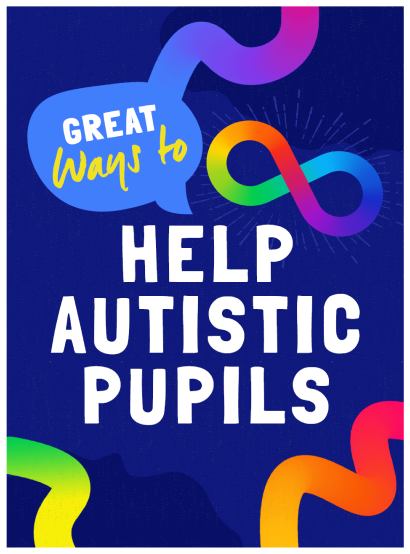Neurodiversity in schools – A letter to my ND colleagues

Openly discussing neurodiversity in schools may be difficult, but it opens the door to true inclusivity for colleagues and children

- by Catrina Lowri
- Founder and director of Neuroteachers Visit website

Dear colleague,
I’m so glad to connect with you. When I first started teaching 23 years ago, I thought I was the only one.
I certainly didn’t know anyone else in the sector who was dyslexic and bipolar. In fact, for the first 17 years of my career, I never met a single ‘out’ neurodivergent (ND) teacher.
These things weren’t talked about. There was an unwritten rule that, should you declare any kind of neurodiversity in schools, it would certainly affect your career.
Now, statistically speaking we know there must be plenty of neurodivergent teachers and support staff.
Neurodiversity in schools
One estimate by the ADHD foundation says that up to 20 per cent of the population are neurodivergent.
This includes a range of conditions including dyslexia, dyscalculia, ADHD, autism and dyspraxia.
Genetic mental health conditions such as bipolar and schizophrenia, and acquired brain injury are also types of neurodivergence.
When you consider the range of conditions, and how it’s very likely that you have friends or family members who have one or more of them, it seems certain that neurodiversity in schools would also occur.
There are also many reasons why a neurodivergent person may be attracted to teaching.
Classroom teaching, especially in Reception and Early Years, is constantly busy and you’re always on your feet with lots of changes going on.
This seems perfect for a person with ADHD who could use their amazing hyper-focus and ability to multitask to great effect in this environment.
Likewise, the dyslexic teacher has that fantastic helicopter view and can have a full picture of what’s going on within the classroom.
They use their creativity to think of different ways to present information to a range of learners.
Moreover, if you have an intense special interest, such as many of our autistic colleagues do, why not talk passionately and enthusiastically about this topic to inspire the next generation?
Yes, neurodivergence amongst the teaching profession makes perfect sense! Indeed, we have a lot to offer.
Talking about neurodiversity
We have a lot in common, too, dear colleague.
Though no two neurodivergent people are exactly alike, we are both members of a profession where neurological differences are not often celebrated, and yet we choose to be here.
We have both, I am certain, felt isolated at times, wishing we had a kindred spirit so that, if nothing else, we could hear a colleague say “Yes, me too”.
Why then, has it taken such a long time for you and me to connect?
My own story is that for many years I did a fantastic job of masking my ND. Mainly because of my shame.
I had been conditioned to believe that my dyslexia and bipolar brought with them nothing but weakness and disorder.
Why then would I admit this difference to others?
I suspect many ND colleagues feel the same. The constant scrutiny in teaching is hard enough without other members of staff peeking over your shoulder to see whether you’ve made a spelling mistake, or checking in with you every few minutes just to make sure you haven’t gone a bit mad.
So, I kept my ND to myself. Until it became simply too difficult to carry on wearing the mask.
I was terrified when the mask slipped and yes, it did affect my career. I must be honest with you about that.
Taking a bold step
Declaring you’re neurodivergent openly and proudly will not be easy. Though it will make your life a lot simpler.
You will no longer have to hide who you are, but you will have to deal with uninformed opinion from peers and parents who believe your ND makes you unfit to do the job.
Please know that I’m with you. There are more of us than you may think.
A growing number of organisations such as the ADHD foundation, British Dyslexia Foundation and Neurodivergent Teachers Network are taking an interest in neurodiverse educators. Unions can be brilliant too.
On a personal level I want to thank you. The more of us that are visible, the more likely it is we can generate an environment of true inclusion.
A school that is fully inclusive for its ND staff will become inclusive for ND children.
In talking openly about our ND, we can truly make a difference to the education system. Thank you so much for your honesty, and for being your authentic self.
From, Catrina
Catrina Lowri is a former SENCo, and founder of Neuroteachers, which helps educational settings work with their autistic and neurodivergent learners to find simple solutions for inclusive practice. Follow Catrina on Twitter @Neuroteachers










